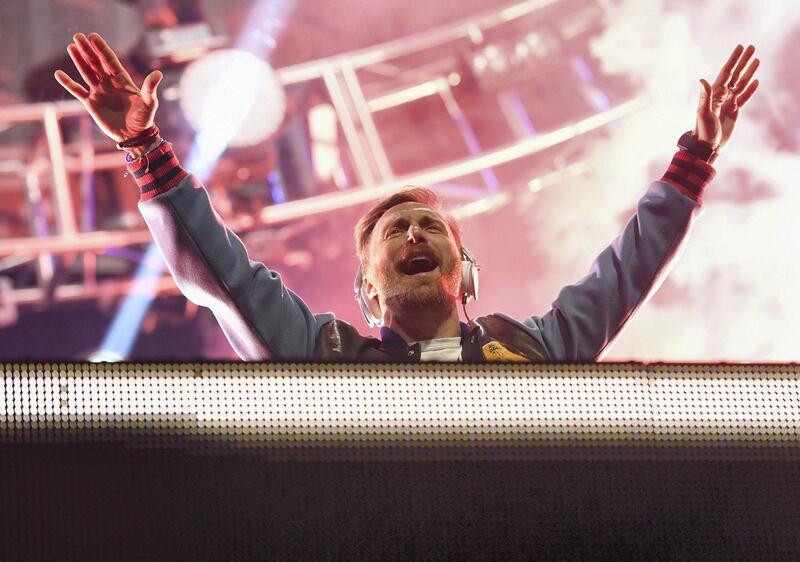Making hits is as much a mental game as it is a technical one, and after a decade of chart-toppers that get people moving on the dance floor, David Guetta has begun to feel the strain.
Since emerging from the French house music scene of the late 1980s and early 1990s, Guetta has cemented himself as a fixture in the charts and on the radio, with earworm anthems such as When Love Takes Over, Without You and Titanium.
Speaking to The National before his performance tonight at Dubai Design District's Base nightclub, Guetta says his work stopped being fun after his winning streak turned into expectation that he would deliver hit after hit. The result was creative block that meant a four-year wait for his new album 7.
“It got to a point where I was facing constant pressure to make hits. That’s why it took time to make the album, because I was writing these songs and doubting myself. I was asking myself ‘is this a hit? And telling myself ‘this is not good enough’,” he says. “It put me in a terrible mental state where I wasn’t happy and it was terrible for my creativity.”
A crisis meeting was held, Guetta says, where he told his team that he was scratching the existing songs he had been working on to start over with zero expectations. In the process, Guetta came to realise the flip-side of success. “It is very addictive,” he says. “It is connected to your ego and that’s your worst enemy. So I just decided to put a lot of music out, some will be big hits while others won’t, and that’s totally OK.”
True to the 50-year-old DJs words, 7 is as varied as it is generous – spread over two albums and 27 tracks. The first disc, led by singles Don't Leave Me Alone and Flames, is dedicated to the sun-kissed commercial sounds that made Guetta rich – he came eighth in Forbes magazine's highest-paid DJs list, with 15 million dollars (Dh55m) earned this year from tours and record sales.
The second half of the album is dedicated to clubbers; tracks such as Grenade and Pelican recall his roots as an underground house music DJ in Paris. Guetta recalls the derision he faced – and still does – when he began expanding his craft to take on more pop sounds, beginning with the 2009 album One Love. He remains amused at suggestions that he "sold out."
“Electronic music fans and young DJs think that it is not hard to make pop music. But in reality it is the most difficult,” he said. “Because a club record can be made in one day. When it comes to pop music there are so many different elements you have to cover and so many different people involved. You need a featured artist to get you on the radio, and then there are the radio stations and record label being involved.”
But Guetta takes the business side of his work in his stride. After all, it is his work ethic that’s the key to his success. “That’s the advice I would give to the young DJs. Work harder than everyone else. That’s what it is about,” he said. “Talent is completely overrated. It is only about 15 per cent. The rest is a lot of hard work and practise and a little bit of luck.”
David Guetta performs on Thursday at Base, Dubai Design District. Doors open at 10pm. For bookings go to basedubai.com
____________________________
Read more:
[ Nile Rodgers pays tribute to Avicii at Amsterdam Dance Event ]
[ Mental health and burnout in the EDM scene discussed at Amsterdam Dance Event ]
[ Basement Jaxx: From Ibiza to Dubai, via a bit of Northern England ]
Martin Garrix in the UAE: A huge new EDM festival is coming to Dubai
____________________________











